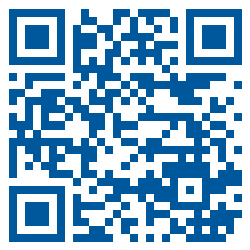
 Medical Secretary - ENT in Coventry inCoventry
Medical Secretary - ENT in Coventry inCoventry PUBLISHED TUE 10 DEC 2024 Jump to job information section
Job description
To provide a specialised, comprehensive and confidential patient centred clinical administration and secretarial service to the Surgical Services team in accordance with Departmental, Trust and National standards, policies and procedures. To act as a source of advice and guidance regarding the specialism for patients.
- To act as a senior point of contact to ensure all enquiries are effectively managed and successfully resolved within a prompt timescale, ensuring all relevant personnel are informed as necessary and an appropriate record is
- To ensure, wherever possible, that all clinical documentation is up-to-date, in an orderly fashion and available whenever clinical decisions are being made, reporting exceptional circumstances where necessary. This will require: effective collaboration with all relevant personnel to maintain an efficient administrative system; prompt transcription, manipulation and distribution of appropriate
- To ensure the effective organisation of all patients under the care of the consultant and his/her team in accordance with Local and National policy and targets. This will require effective collaboration with: the Booking Centre and Patient Access team to ensure the waiting list is up-to- date and accurate at all times; Outpatient Access team and General Managers to monitor the utilisation and effectiveness of outpatient clinics, ensuring that established Patient Access Policy and procedures are adhered to; Theatre, Diagnostic and Ward teams to ensure that the elective care pathway for all patients is seamless and sensitive to their needs.
Closing Date: Please be advised that this job advert will close as soon as sufficient applications have been received. Please apply for this job as soon as you can, if interested.
About us
- To maintain an efficient office management system/procedures to enable the consultant and his/her team to optimise their patient care services. This will require: effective management of the consultants time, managing schedules and leave arrangements ensuring appropriate and timely communications with all relevant personnel, arranging meetings/events, composing and transcribing minutes proactively ensuring action points are raised and completed, preparation of correspondence and reports; effective management of the consultants office by establishing and maintaining efficient manual and electronic correspondence and documentation management systems; ensuring office equipment and stationery levels are maintained, processing orders as required and tracking patients through their pathway from initial referral to discharge.
- To support team members. This will require: demonstrating and explaining Departmental practices and procedures; undertaking appropriate training and development with new and existing staff ensuring high standards of practice are maintained at all times; providing cross-cover on a reciprocal basis in the absence of colleagues and providing day to day supervision where
- Provide oversight to the Support Secretaries for associated administrative activities, such as patient bookings, appropriate documentation and typing, with local training.
- Use of hospital systems, including IPM, CRRS, Opera, Winscribe and from June 2024, EPR, to effectively manage workload and RTT patient pathways.
- Liaise with patients over the phone for clinics, theatre bookings and general queries, providing feedback to Consultants and Admin Manager team for any urgent matters. Ensuring clear lines communication and correspondence in line with Trust policies and procedures.
- Responding to patient complaints and providing follow-up actions for any outcomes required to the PALS team and senior management.
- Will provide a key function in the booking of Outpatients follow-up appointments and short notice theatres, tracking the patient through the processes as part of managing their Consultants Waiting List.
- Responsibility for typing of routine and urgent letters where appropriate, linking in with clinicians for any queries and for following up on verification.
- Complete Trust Mandatory Training and keep up-to-date for all modules.
Key Result Areas and Performance
- Ensuring theatres and clinics are fully utilised to 100%
- Ensuring quick turnaround of PALS complaints
For further details please see the attached job description.
If you're interested in this role but you have questions or you're not yet ready to apply, then please book a quick call with us and we'd be happy to answer any questions you have and tell you more about the role.
Requirements
See the job description for full role requirements.
Benefits
Benefits are provided by the employer and will be confirmed during your application.
A quick tap lets us tune future job matches for you


Scan with your phone to return to this page later.